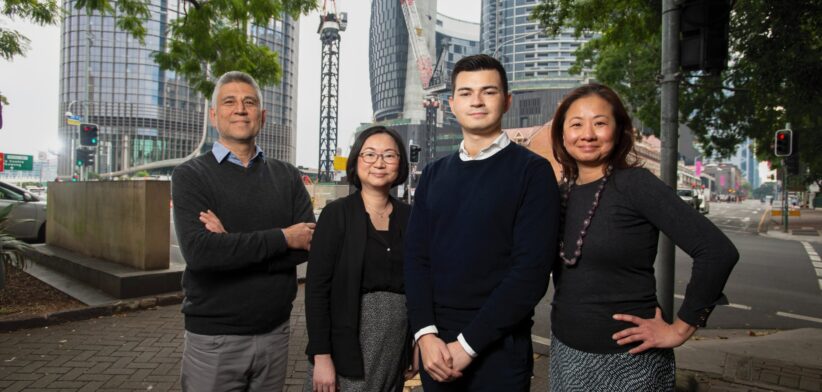Artificial intelligence (AI) has the potential to create a greener construction industry.
Based on a QUT analysis of current research, AI could be used in a diverse range of industry activities from energy usage and resource allocation to workforce productivity and stakeholder engagement.
Led by PHD researcher Massimo Regona, a team, including Professor Tan Yigitcanlar, Dr Carol Hon and Dr Melissa Teo, conducted a literature review of 91 publications to discover how AI could be integrated across key construction project phases to enhance sustainability.
The team from City 4.0 Lab’s Urban AI Hub in the QUT School of Architecture and Built Environment found AI’s implementation would contribute to multiple UN Sustainable Development Goals (SDGs) including clean energy, sustainable cities and climate action.
Mr Regona said the construction industry was “one of the major polluters” in Australia.
“However, significant efforts are being made across the sector to align with sustainability principles by incorporating green building standards, using sustainable materials and adopting innovative technologies,” he said.
Mr Regona said of the publications analysed, 78 percent were published in the last three years suggesting heightened interest in the topic.
He said across the SDGs pertinent to the industry, the research suggested AI could optimise energy usage in building designs through predictive modelling and energy simulation, while also promoting sustainable consumption and production practices by optimising resource utilisation and waste reduction.
“Its use could also improve supply chain efficiency, workforce productivity and stakeholder engagement, contributing to broader sustainability goals.
“Additionally, AI-driven technologies such as machine learning and natural language processing was shown to improve the collection and analysis of sustainability data, enabling proactive responses to emerging issues.”
Mr Regona said in an increasingly digital world, construction remained hands-on and low-tech.
He said while there had been some uptake of AI in the field, its application was limited due to a lack of expertise, cost concerns and the industry’s traditional reliance on human labour.
“There is growing curiosity in leveraging AI to optimise construction phases through site surveying, predictive analytics, automation and smart construction materials,” he said.
“Some companies appreciate that these innovations have the potential to transform traditional practices into more efficient and sustainable methods.”
Professor Yigitcanlar said that future efforts should first prioritise understanding the challenges construction companies, particularly small and medium-sized ones, face in adopting AI into their practices.
“By addressing these barriers, the industry can significantly enhance sustainability and efficiency.”








